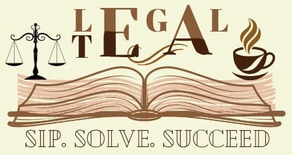Trusting the Outside: Why You Don’t Need to Know a Company’s Internal Affairs
Businesses frequently interact with a diverse spectrum of individuals in the business sector, including shareholders, directors, creditors, and members of the public. Certain legal rules are developed to guarantee openness and order. The Doctrine of Indoor Management is one such idea. This theory is essential for safeguarding third parties that interact with businesses.
Riya Singh, 3rd year, B.A; LL.B
4/24/20254 min read


A corporate law principle known as the Doctrine of Indoor Management safeguards third parties who do business with a corporation in good faith. It states that when a person signs a contract or does business with a corporation, they can presume that all internal operations, including meetings, approvals, and signatures, are operating as intended.
In the well-known English case Royal British Bank v. Turquand (1856), this notion was initially presented. In that instance, the court determined that external parties are not expected to be familiar with a company's internal operations. All they have to do is make sure the individual they are interacting with is authorized to take action. It guarantees that companies can't use internal mistakes as an excuse to avoid accountability. There are numerous legal regulations that safeguard businesses and the individuals who do business with them. The Doctrine of Indoor Management is one such significant regulation. This legal principle safeguards third parties or outsiders who do business with a corporation in good faith. Let's first examine how businesses operate in order to gain a better understanding of this.
Businesses operate according to internal norms and regulations. They are documented in two primary documents:
• Memorandum of Association (MOA): This outlines the goals and authority of the business.
• The company's internal policies, such as who can sign contracts and how meetings should be run, are outlined in the articles of association (AOA).
The Doctrine of Constructive Notice is another legal idea that states that since a company's
AOA and MOA are publicly accessible, outsiders are expected to be aware of their contents. But no outsider can be expected to understand a company's internal decisions or operations, which is where the Doctrine of Indoor Management enters the picture.
According to the Doctrine of Indoor Management, a person is not obligated to verify the internal operations of a business if they are working with it and everything seems to be running smoothly from the outside. Stated differently, external parties can presume that the organization is appropriately adhering to its internal policies. Assume, for instance, that a company's AOA stipulates that borrowing is only permitted if the board of directors approves it during a meeting. Now, this approach will still protect the lender if an outsider loans money to the business and it later turns out that no such meeting took happened. It is not required of the outsider to confirm internal meetings or approvals.
The case of Royal British Bank v. Turquand (1856) established this notion. In this instance, the court decided that an individual interacting with a business has the right to presume that internal policies have been adhered to, even if they haven't. Therefore, the theory protects those who do business with firms from being duped by internal mismanagement and balances the power granted to them. This philosophy is also recognized and practiced in India. In numerous instances, the rule has been used by Indian courts to safeguard individuals who engage with businesses in good faith. Lakshmi Ratan Cotton Mills Co. Ltd. v. J.K. Jute Mills Co. Ltd. (1957) is a significant case. In this instance, the court decided that the Doctrine of Indoor Management protected the lender when a company secretary borrowed funds on the business's behalf and the transaction appeared legitimate.
This theory demonstrates that businesses cannot escape accountability by placing the blame on their own internal shortcomings. The business must accept responsibility if they permit someone to operate on their behalf and that person seems to have authority. It also implies that businesses should maintain robust internal processes and make sure that only individuals with permission act on their behalf. If not, they could be held accountable for acts taken by employees of the company without the required authorization.
One of the most sensible and equitable corporate legal principles is the Doctrine of Indoor Management. It guarantees that businesses cannot hide behind internal errors and safeguards innocent third parties that do business with them in good faith. It is founded on common sense, justice, and trust. Outsiders are not expected to be aware of what goes on in boardrooms or general meetings, even though they are required to read public documents and comprehend corporate policies. As long as they are neither irresponsible or dishonest, this approach provides them with that legal protection.
The Doctrine of Indoor Management offers much-needed balance and safety in a world where businesses are big and complicated, which makes commercial transactions more reliable and seamless. The Doctrine of Indoor Management contains some exceptions, much like any other law, in which an outsider is not protected: Knowledge of Irregularity: An outsider cannot assert protection if they are aware that internal regulations are being disregarded. Suspicion of Irregularity: An outsider loses protection if they fail to conduct appropriate inquiries and the situation appears suspicious or out of the ordinary. Forgery: If the paperwork or approvals are fake, this doctrine is not applicable. Negligence: The outsider may not receive protection if they are irresponsible and do not use reasonable prudence.
REFERENCES:
1. Davies, P.L. (2018) Gower and Davies: Principles of Modern Company Law. 10th edn. London: Sweet & Maxwell.
2. Hicks, A. and Goo, S.H. (2011) Cases and Materials on Company Law. 7th edn.
Oxford: Oxford University Press.
3. Ramaiya, A. (2020) Guide to the Companies Act. 20th edn. New Delhi: LexisNexis.
4. Royal British Bank v Turquand (1856) 6 E&B 327; 119 ER 886.
5. Lakshmi Ratan Cotton Mills Co. Ltd. v J.K. Jute Mills Co. Ltd. AIR 1957 All 311.
6. Sharma, J.P. (2021) Corporate Laws. 8th edn. New Delhi: Ane Books Pvt. Ltd.
7. Singh, A. (2019) Company Law. 18th edn. Lucknow: Eastern Book Company.
Because Every Legal Mind Deserves a Great Conversation.
Legaltea.in@gmail.com
+91 6284295492
MSME Certified
© 2025 Legal Tea. All rights reserved.


